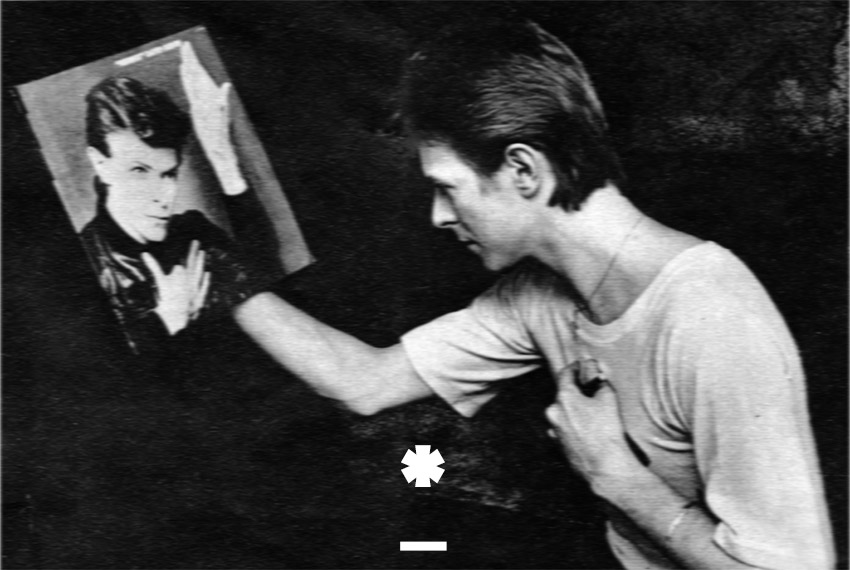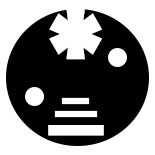1977-1979: A New Career In A New Town
DAVID BOWIE’S “BE MY WIFE” PROMO VIDEO
Its hard not to get overly sentimental and nostalgic about this special time in Bowie’s life. Released in 1977, Low found David back in Europe, in Berlin of all places, trying to right his life. Why was he there to begin with? One reason was that painfully, he was trying to quit a horrific cocaine addiction. Rejecting any sorts of personas and any easy way out, he was trying to settle closer to the source of his new inspiration. It’s this second reason that drew him to Berlin, as it was the capital of a decidedly new, and progressive form of music that excited him.
Words cannot express: RIP David Bowie https://t.co/g40zLWl3qq pic.twitter.com/R94E6LMw9C
— Brian Eno (@dark_shark) January 11, 2016
When David invited Tony Visconti to Studio Château d’Hérouville in France in 1976, little did he imagine that only months later he would trade the idyllic of haunts of Hérouville for the austere and bleak surroundings of West Berlin. You see, even before Low began, David had been toying with the idea of a new type of music. Using his friend Iggy Pop as a willing guinea pig, 1977’s The Idiot allowed David to give up the limelight and prod a certain kind of primal energy that can be derived from American music meeting head-first with the mechanical groove of European music.
IGGY POP’S “FUNTIME” PRODUCED BY DAVID BOWIE
MESSAGE FROM IGGY: "David’s friendship was the light of my life. I never met such a brilliant person. He was the best there is. - Iggy Pop"
— Iggy Pop (@IggyPop) January 11, 2016
Iggy described it as “a cross between James Brown and Kraftwerk,” a statement which couldn’t be closer to its mark. This time of freedom and responsibility allowed Bowie to conceive of following through with his own take of this combination. By the time it was mixed in Berlin, Low, which started off as an instrumental album cast off from the movie The Man Who Fell to Earth had become its own entity, itself providing a blueprint for what he wanted to do. The first half pointing to some of the inspired Art-Rock that not-so-hidden collaborator Brian Eno had been doing in Here Come the Warm Jets and Taking Tiger Mountain (By Strategy), however it was the second half that was truly astounding.
zZ SAMPLER: DAVID BOWIE 1977-1979
Nearly wordless, and decidedly more spectral, it invited mass culture into feeling things perhaps in a way they’d never ever experienced before. How can something so synthetic and machine-made sound so ethereal and human? Tracks like “Warszawa” influenced by a decidedly bleak trip into the Polish countryside and “Art Decade,” a pining ode to the surreal place West Berlin was inhabiting in history, spoke in in tonal music exactly things a voice might not be able to say and entrusted in listeners to feel these same emotions. It was revolutionary for bands like Neu!, Cluster, and Kraftwerk to try to capture this essence, but for Bowie and Eno to come at this as outsiders was visionary. It’s a belief that as in deep as they were into Post-Modernist Art and motives, they felt strongly that there was an audience out there willing and open to embrace these new ideas.
BOWIE PRESENTING “SENSE OF DOUBT” AND “HEROES” ON ITALIAN TV
Heroes, recorded at Hansa Studios in Berlin and released mere months later was the startling product of this era of musical and sonic discovery. Strident and hypnotic, “Heroes” itself becoming a fitting ode to Neu!’s own “Hero,” a celebration of outsiders riding triumphantly through the night. This signpost which was flanked on the B-Side by “V-2 Schneider,” itself an ode to Kraftwerk founder Florian Schneider, through one magnificent single gave everyone a peer into a sonic world ready to be discovered as they’d done so. Simply listen to the churning guitars of Robert Fripp and Carlos Alomar, being flanked by Eno and David’s ladder raising synthesizing, once those Motorik-hinting drums kick in, nothing gets you closer to that romanticized feeling of rebirth and romance that Bowie was experiencing than this sound. Honed and reformed to a nearly-perfect form, Heroes presented both sides of this new sound, one the vocal side and the other silent side upending Low’s melancholy for positively vibrant human emotions.
DAVID BOWIE’S “DJ” PROMO VIDEO
This feeling of finding peers that were traveling in the same direction, the very thing that fueled Heroes’ direction, would arguably be what make Lodgers appear as a slight failure. So lofty were the heights reached on those two previous releases, that it seemed other musical movements had done enough to catch up and compartmentalize a lot of what this “Berlin Trilogy” had done. Competition from Post-Punk groups, Post-Disco and Italian-electro music had made what could have been seminal songs like “DJ”, and “Boys Keep Swinging” for others, not sound as sparkling as before for David Bowie. It wouldn’t help that Bowie, Eno, and Visconti were already interesting themselves in other groups and ideas that hastened the end of their creative relationship. Bowie himself was suffering the curse of the early adopter as newfound groups like Japan, Talking Heads, and a rejuvenated Roxy Music, were perfecting this unique trend he unwittingly helped fashion. At the end of the day, it seemed, like every upward curve had to slope down eventually.




